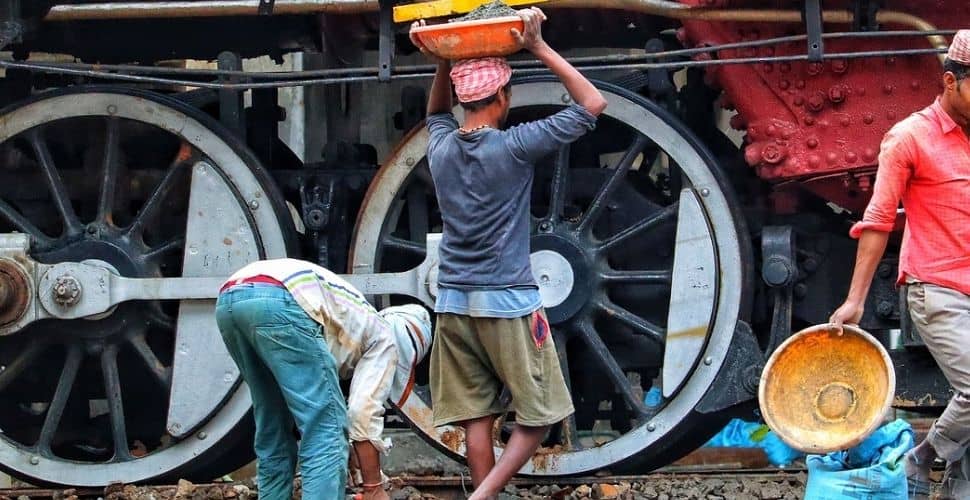Under India’s ancient social hierarchy system, Dalits – who are considered to be at the bottom of the caste system – continue to work for little or no pay in the homes of upper-caste families in Karnataka state under a custom called “bitti chakri”.
Bitti chakri is a form of customary bonded labor performed exclusively by Dalit communities in districts of North Karnataka, often used by landlords in return for food grains.
The custom differs from debt bondage as there is no debt to repay, but a customary obligation to work for the upper caste traps Dalits in a repetitive cycle of exploitative labor that is passed down through generations.
As Thomson Reuters Foundation reports, while the government of Karnataka state banned the practice of bitti chakri in November 2020, people continue to be trapped in these exploitative situations.
Thomson Reuters Foundation reports:
Jeevika found more than 3,000 Dalit families in 15 Karnataka districts were “working for free”, while a further 10,000 were doing unpaid labour during weddings, funerals and other ceremonies, according to a 2019 report by the charity.
They were given some maize, wheat or pulses in return and, on rare occasions, a token sum of money.
Social worker Indumathi Sagar, 44, regularly visits villages in the Bidar district of Karnataka, stopping at Dalit homes to ask them about where they work and how much they earn.
“There are so, so many still trapped in bitti chakri, too scared to complain against the landlords who live down their street,” Sagar said by phone from her home in Bidar.
“They know they are being exploited, they understand their rights but it is very difficult for them to break free from the tradition.”
Barbers and workers hired to wash clothes in the state of Odisha have benefitted from a campaign led by Baghambar Pattanaik that called for these workers to no longer be obliged to work for no pay for upper-caste people. Subsequently, Odisha amended its anti-slavery legislation 10 years ago to include this type of customary labor.
While the government provided release certificates to over 2,000 barbers and washermen following the implementation of the ban, more needs to be done to ensure those perceived to be in lower castes are empowered to reject exploitative labor.
As Pattanaik noted:
“Implementation of the law has always been a challenge, particularly in cases of free labour, where the usual parameters of bonded labour like confinement and abuse don’t always exist…Besides banning, governments have to seriously undertake surveys to identify these people, who are too scared to speak up because of years of oppression they have faced. Otherwise, it will remain a change on paper.”







Freedom United is interested in hearing from our community and welcomes relevant, informed comments, advice, and insights that advance the conversation around our campaigns and advocacy. We value inclusivity and respect within our community. To be approved, your comments should be civil.
O governo da Índia já se posicionou quanto a esse trabalho escravo?
The government uses such Hindu caste based forced labour, women trafficking, untouchability, rapes – happening to the same community of more than hundred million ‘Dalits’ (oppressed caste in India) and their generations, as a tool to win the power over existing ruling party; whereas the ruling party has no administration in place to ensure implementation of the law. So all in all the government of India doesn’t care about what’s happening at the ground level as they are only interested in power of politics. United Nations also couldn’t convince Indian government handle this issue even after 72 years since the… Read more »
Not. it doesn’t care!
Has the government of India already taken a position on this slave labor?